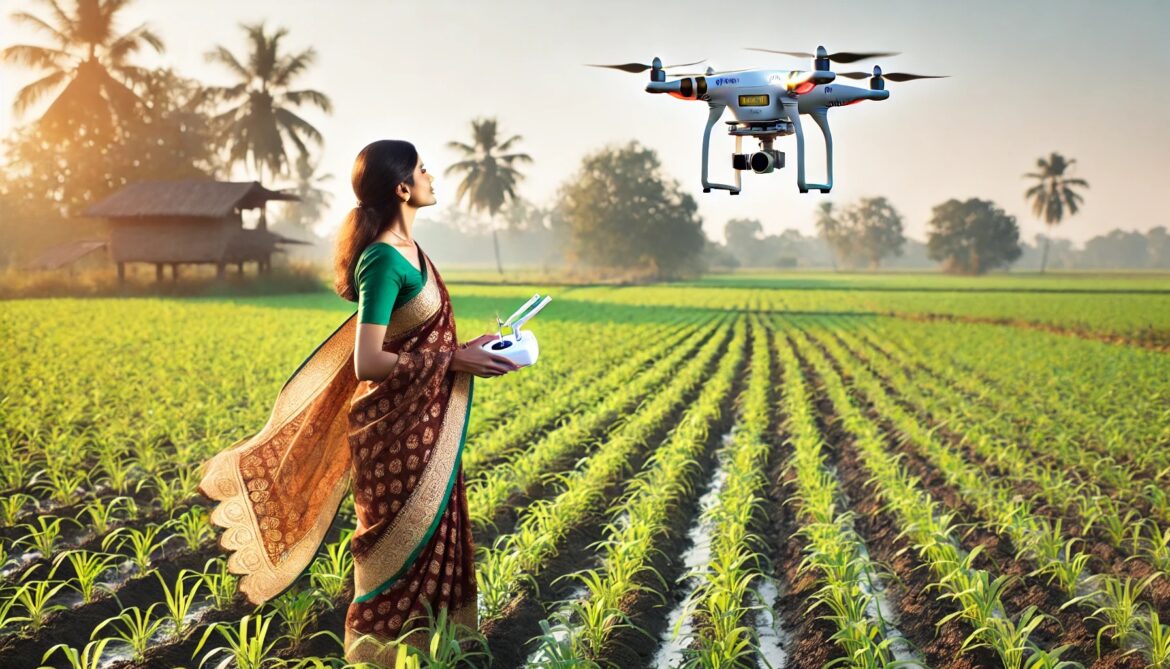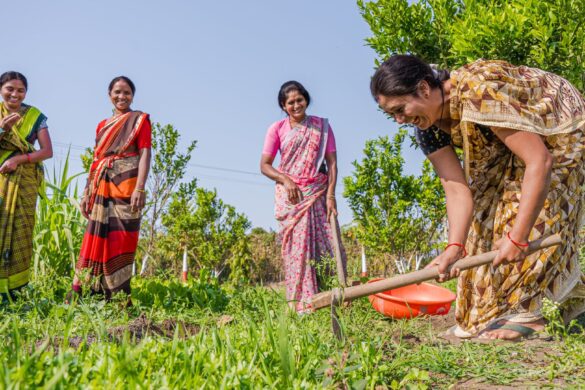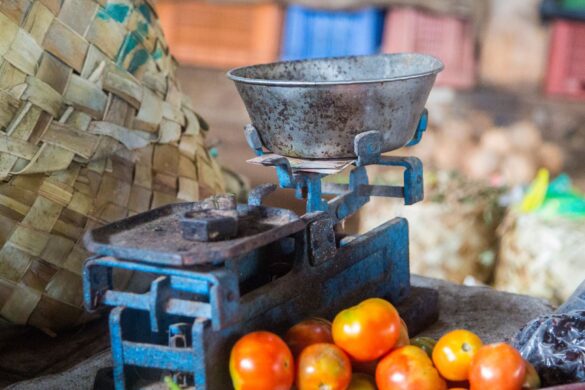“Drone Sakhi” mission or the “Namo Drone Didi” scheme is an initiative by the Government of India aimed at promoting the use of drones for enabling skill development, empowering and improving rural women’s economic conditions.
The goal is to make drones a technological assistant for rural women in India, enhancing agricultural productivity and sustainability. Many developed countries utilize technology in agriculture to improve both the quality and quantity of crop yields. In order to incorporate this in India as well, rural women are educated and trained as drone pilots. They are provided with drones, financial support, technical know-how and maintenance facilities to navigate the new skies.
By empowering women with drone-operating skills, the Drone Sakhi project aims to provide them with new avenues for income generation, economic independence and as an effect, better domestic life, confidence and respect.
This will also bridge the gender gap in technology adoption and create opportunities for women to participate actively in sectors traditionally dominated by men. This is a forward-thinking initiative to leverage technology for the socio-economic empowerment of rural women in India, paving the way for their inclusion and participation in the country’s development journey.
Key features of the Drone Sakhi mission include:
1. Skill development and hands-on training: Women from Self-Help Groups (SHGs) receive comprehensive training on drone operation and maintenance. This includes 15 days of training, with five days dedicated to mandatory drone pilot training and ten days focused on agricultural applications such as nutrient and pesticide spraying.
2. Financial and Infrastructure Support: The government provides substantial financial assistance, covering 80% of the cost of drones and related accessories, up to a maximum of Rs. 8 lakh per drone. The remaining cost can be financed through loans with interest subvention under the National Agriculture Infra Financing Facility (AIF). Government also provides necessary infrastructure, including training centres and maintenance facilities for drones.
3. Economic Opportunities: The scheme aims to create sustainable business and livelihood opportunities for 15,000 women SHGs. By renting out drone services to farmers, these women can earn additional income, enhancing their economic independence
4. Agricultural Benefits: The use of drones in agriculture is expected to improve efficiency, increase crop yields, and reduce operational costs. Drones will be used for tasks such as crop monitoring, fertilizer spraying, and seed sowing, promoting the adoption of advanced agricultural technologies.
Sunita Devi from Sitapur has become a notable example of the impact of the Drone Shakti scheme. As a mother and farmer, she faced significant challenges during the rainy season when traditional farming methods became impractical. By operating drones, she and other women like her have revolutionized farming practices, making tasks such as pesticide spraying and crop monitoring more efficient. Sunita’s story highlights the scheme’s role in empowering rural women and modernizing agriculture
5. Women Empowerment: Many of these women, initially apprehensive, gain confidence and new skills, allowing them to contribute economically to their households and communities.
23-year-old Rifat Ara shared her initial apprehension about enrolling in the Drone Shakti scheme. However, after completing the training, she felt empowered and capable of not only earning a livelihood but also teaching other women to fly drones. “I feel I can now earn something and also teach other women how to fly,” she said, expressing her newfound independence and confidence.
Nisha Bharti, an instructor at the Drone Destination training school, has witnessed the transformation of her pupils firsthand. “When they first come here from the villages, they are so nervous. But by the time they finish the course, they become super confident,” Bharti remarked, underscoring the personal and professional growth these women experience.
6. Government Support and Expansion: The Indian government has significantly increased funding for the Drone Shakti scheme, with allocations rising from Rs 200 crore to Rs 500 crore. A total investment of ₹1,261 crore is planned for the scheme by March 2026. This funding supports the training of women, the development of drone infrastructure, and the promotion of drone startups. The scheme aims to train 15,000 women, empowering them to take on roles as drone pilots, mechanics, and entrepreneurs in the agricultural sector.
The Drone Sakhi mission aligns with the broader goals of the Indian government to promote women-led development and integrate cutting-edge technology into traditional sectors like agriculture, thereby boosting productivity and fostering economic growth.









